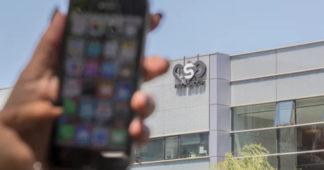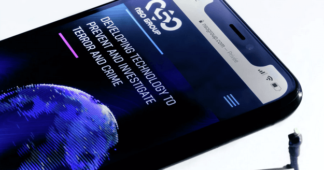Sep 19, 2024
Lebanon is reeling in the wake of 48 hours of terror attacks blamed on Israeli intelligence targeting Hezbollah through a series of coordinated explosions of electronic devices. Which companies, brands and devices are involved? Here’s what we know.
Handheld communications equipment makers are in damage control mode after on Tuesday and Wednesday’s series of explosions across Lebanon, which have left scores of people dead and thousands injured.
For the privacy minded, the acts of terror add terrifying new risk, demonstrating that intelligence services can use your devices to not just spy on you, but kill you without provocation or due process, if you fall on their bad side. Here’s what we know about the companies whose products were involved in the Lebanon attacks:
Gold Apollo: This Taiwanese manufacturer of alphanumeric pagers, restaurant and hospitality wireless solutions is at the center of events, with the company’s AR924 series pagers exploding en masse (up to 5,000 simultaneously) in Lebanon and Syria on Tuesday. Gold Apollo founder Hsu Ching-Kuang told media the pagers in question were manufactured under license by BAC Consulting KFT, a shady Hungary-based subcontractor registered in 2022 with just one employee and run out of a small building in a residential neighborhood of Budapest with no visible outside presence.
Hsu claims Gold Apollo did not design or manufacture the deadly pagers – each thought to have been stuffed with three grams of explosives. Reached for commentary, BAC Consulting CEO Cristiana Barsony-Arcidiacono, an LSE and University of London graduate and former European Commission advisor, told US media she did “not make the pagers” and was “just the intermediary.” A government spokesman said in a statement that BAC Consulting has no manufacturing presence in Hungary.
Icom Incorporated: Osaka-headquartered radio, wireless LAN and SIP solutions maker Icom is the other company widely implicated, via its explosive IC-V82 VHF series of handheld walkie-talkies. The company cannot confirm the shipment of its products to Lebanon, and said the manufacture of this particular transceiver was halted in 2014. Icom assured that it sells its wares only through authorized distributors, and has had problems with counterfeiters using its brand.
Lebanese media have reported that other electronic devices also exploded in this week’s carnage, from home solar energy systems and car batteries to electric scooters, fingerprint-reading devices, laptops and smartphones, including iPhones. These reports have yet to be independently verified.
Apple has taken its share of blows to its reputation in recent years from manufacturing faults causing iPhones to randomly catch fire or explode while charging, and scandals related to intelligence agencies using its products to spy on users, but no past publicly reported incidents involving iPhones being deliberately used as makeshift explosive devices.
The breadth and extent of the reported attacks has prompted some observers to suggest that batteries sold by shady third party suppliers may have been involved.
We remind our readers that publication of articles on our site does not mean that we agree with what is written. Our policy is to publish anything which we consider of interest, so as to assist our readers in forming their opinions. Sometimes we even publish articles with which we totally disagree, since we believe it is important for our readers to be informed on as wide a spectrum of views as possible.











